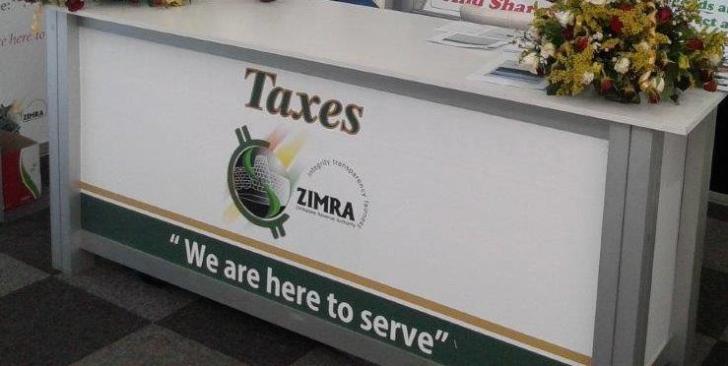News / National
Zimra provides details on short-shipping of imported goods
25 May 2017 at 13:42hrs |
881 Views

The Zimbabwe Revenue Authority has provided citizens with the procedure in short-shipping of imported goods into the country.
The authority said a short-shipment occurs when cargo listed on invoices or carrier's documents is not included in a shipment or is not received by the recipient or consignee.
"In other terms, the quantity of goods received and cleared by the recipient/consignee will be less than the quantity listed on the invoices or shipping documents. Despite some goods being short shipped as described above, all goods shown on an invoice, bill of lading, manifest, consignment note, waybill or other document as having been consigned to Zimbabwe shall be deemed to have been imported and shall be cleared on a bill of entry.
Circumstances where short-shipments may occur," Zimra staement reads.
"Short shipment may arise due to any of the following reason: Errors at the source, where the incorrect quantity is shipped or the incorrect quantity is listed, Lack of communication between suppliers and buyers, Mis-description of goods"
Zimra said if an importer is able to produce evidence to show that any goods, which have to be accounted for or which have already been cleared, have not been imported, the following steps shall be followed, the importer shall report to ZIMRA Officers at the port of entry and submit documentation to that effect.
"A physical examination of the goods shall be carried out by ZIMRA Officers for verification purposes if the goods are still within Customs control, If the short-shipment is discovered when the goods are already out of Customs control, the importer shall be required to produce any documentary evidence to prove beyond reasonable doubt to the ZIMRA Commissioner General that the goods were not imported," said Zimra.
"In some instances, suppliers may acknowledge their error and send the goods to the importer later. Upon arrival, the goods shall be verified by the ZIMRA Officers at the port of entry and if they are satisfied, the goods shall be released to the importer. Where there are discrepancies, or where different goods as were invoiced are delivered, adjustments shall be done to the original clearance documents."
Zimra said there are some instances where suppliers will not replace the short-shipped goods but may re-imburse the importer.
"In such circumstances, duty already paid may be refunded to the importer and adjustments done to the clearance documents. However, the importer must submit evidence to that effect to the satisfaction of the ZIMRA Commissioner General," said Zimra.
"If a report of short-shipment is not done, the original goods included on the invoices, bill of landing and other shipping documents are deemed imported into Zimbabwe and any duty due shall be required to be paid forthwith and there will be no refund. The arrival of the “short-shipped†goods will be treated as a fresh importation and duty becomes due and payable as no report would have been done."
The authority said a short-shipment occurs when cargo listed on invoices or carrier's documents is not included in a shipment or is not received by the recipient or consignee.
"In other terms, the quantity of goods received and cleared by the recipient/consignee will be less than the quantity listed on the invoices or shipping documents. Despite some goods being short shipped as described above, all goods shown on an invoice, bill of lading, manifest, consignment note, waybill or other document as having been consigned to Zimbabwe shall be deemed to have been imported and shall be cleared on a bill of entry.
Circumstances where short-shipments may occur," Zimra staement reads.
"Short shipment may arise due to any of the following reason: Errors at the source, where the incorrect quantity is shipped or the incorrect quantity is listed, Lack of communication between suppliers and buyers, Mis-description of goods"
Zimra said if an importer is able to produce evidence to show that any goods, which have to be accounted for or which have already been cleared, have not been imported, the following steps shall be followed, the importer shall report to ZIMRA Officers at the port of entry and submit documentation to that effect.
"A physical examination of the goods shall be carried out by ZIMRA Officers for verification purposes if the goods are still within Customs control, If the short-shipment is discovered when the goods are already out of Customs control, the importer shall be required to produce any documentary evidence to prove beyond reasonable doubt to the ZIMRA Commissioner General that the goods were not imported," said Zimra.
"In some instances, suppliers may acknowledge their error and send the goods to the importer later. Upon arrival, the goods shall be verified by the ZIMRA Officers at the port of entry and if they are satisfied, the goods shall be released to the importer. Where there are discrepancies, or where different goods as were invoiced are delivered, adjustments shall be done to the original clearance documents."
Zimra said there are some instances where suppliers will not replace the short-shipped goods but may re-imburse the importer.
"In such circumstances, duty already paid may be refunded to the importer and adjustments done to the clearance documents. However, the importer must submit evidence to that effect to the satisfaction of the ZIMRA Commissioner General," said Zimra.
"If a report of short-shipment is not done, the original goods included on the invoices, bill of landing and other shipping documents are deemed imported into Zimbabwe and any duty due shall be required to be paid forthwith and there will be no refund. The arrival of the “short-shipped†goods will be treated as a fresh importation and duty becomes due and payable as no report would have been done."
Source - Byo24News
Join the discussion
Loading comments…


































